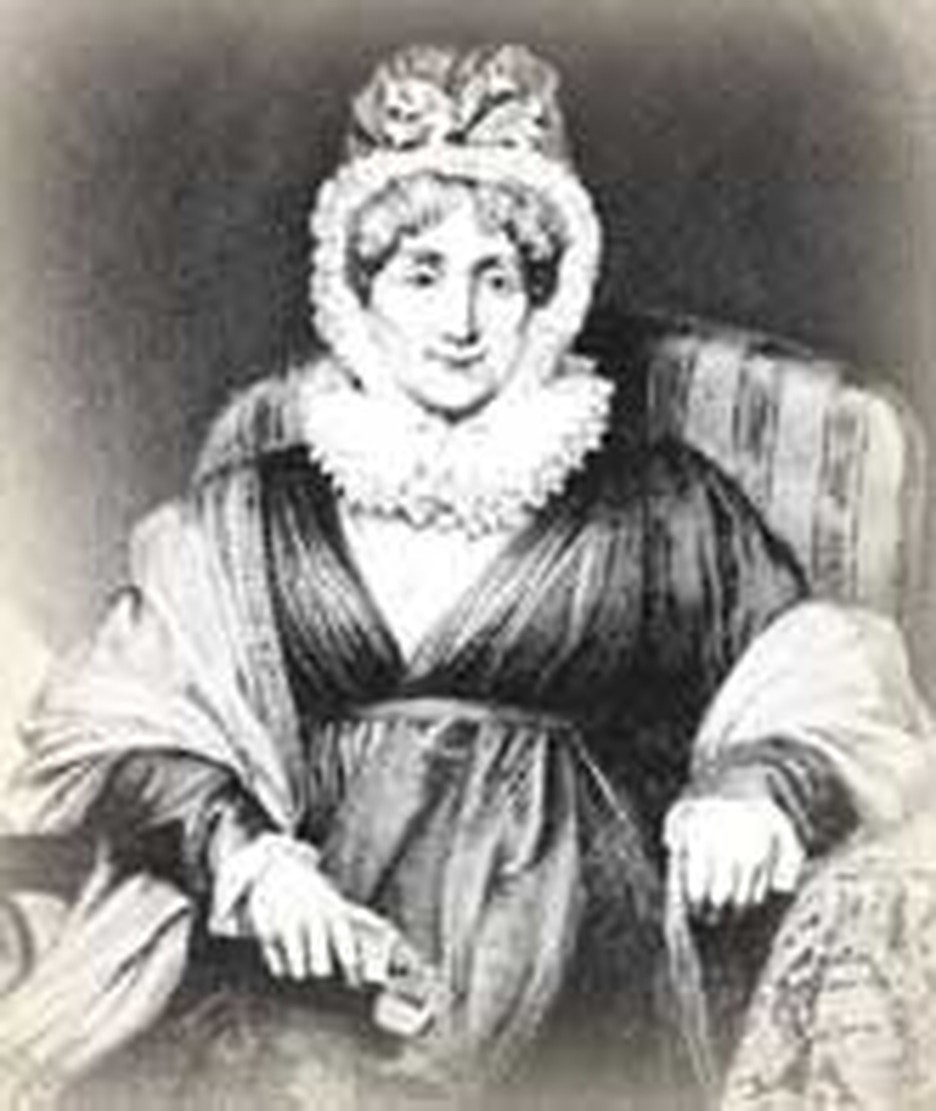
Hannah More was a woman whose remembrance speaks less of her particular accomplishments than of her influence and associations. In this regard, she was like her friend Samuel Johnson. Other friends were William Wilberforce, the Macaulays, and John Newton. The famous actor Garrick patronized her plays which enjoyed success--but Hannah always felt nagging guilt for having written them.
In her early years, Hannah was not adverse to the high life. She kept up a lively correspondence with prominent contemporaries and was part of every festivity. To the end of her days she was on easy terms with "infidels" such as Horace Walpole. But contact with John Newton and William Wilberforce channeled her mind and energies toward moral issues, and she became deeply religious.
In later life Hannah wrote only educational and religious tracts. Education was her forte. As a girl she'd learned the techniques of pedagogy while helping her sisters operate girl's schools. As an adult, moved by the need for Christian action, she flung her energies into the business of establishing Sunday schools in the brutal coal-mining district of Mendip Hills, where atrocities had turned humans into animals. These schools didn't teach just Bible lessons as do modern Sunday Schools, but also reading, gardening, cooking, personal hygiene, sewing and civic virtue.
There was terrific opposition to Hannah's schools from clergy and mine owners. The gentry feared that men who could read the Bible could also read propaganda. They were right--and wrong. The good done by exposing the masses to scripture was immense. Many developed Christ-centered lives.
The miners and their wives desperately needed knowledge to improve their lives; they did not even know how to manage the little money they had. Nor did most of them know how to grow vegetables to supplement their table or how to cook well. Hannah's homemaking classes addressed such practicalities.
In addition to schooling the lower classes, Hannah fought for justice in such everyday matters as obtaining honest bread weights. She succeeded in getting bread laws passed in 40 parishes.
Toward the end of her life, this lady, whose days had been a whirlwind of activity, became weak and had to limit visits to two days a week. But her vivacity, wit and charity evoked love from the rising generation. The effect of her individual efforts cannot be measured. Many others were working throughout England. Certain is that when she died peacefully on this day, September 7, 1833, she had spent much of her life improving the condition of her fellow men. Most of the £30,000 she left was willed to churches and charities.
Bibliography:
- Hopkins, Mary Alden. Hannah More and her Circle. New York: Longmans, Green and co, 1947.
- Kunitz, Stanley L. British authors of the nineteenth century. New York: H. W. Wilson company, 1936.
- Meakin, Annette M. B. Hannah More, a Biographical Study. London: Smith and Elder, 1911.
- "More, Hannah." Dictionary of National Biography. Edited by Leslie Stephen and Sidney Lee. London: Oxford University Press, 1921-1996.
Last updated April, 2007.
.jpg)

.jpg)
